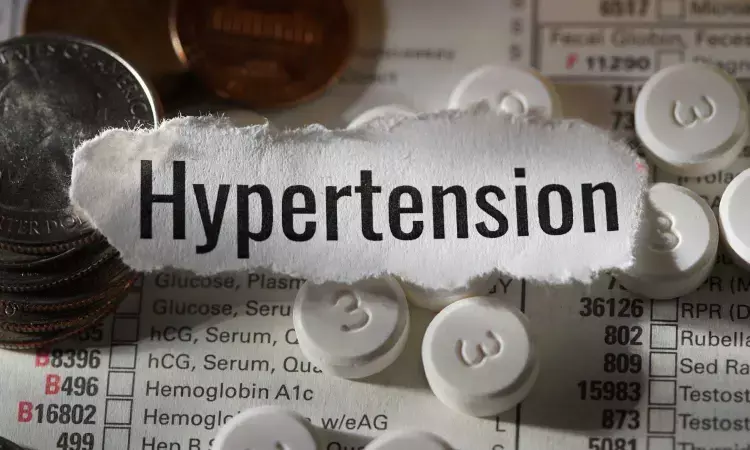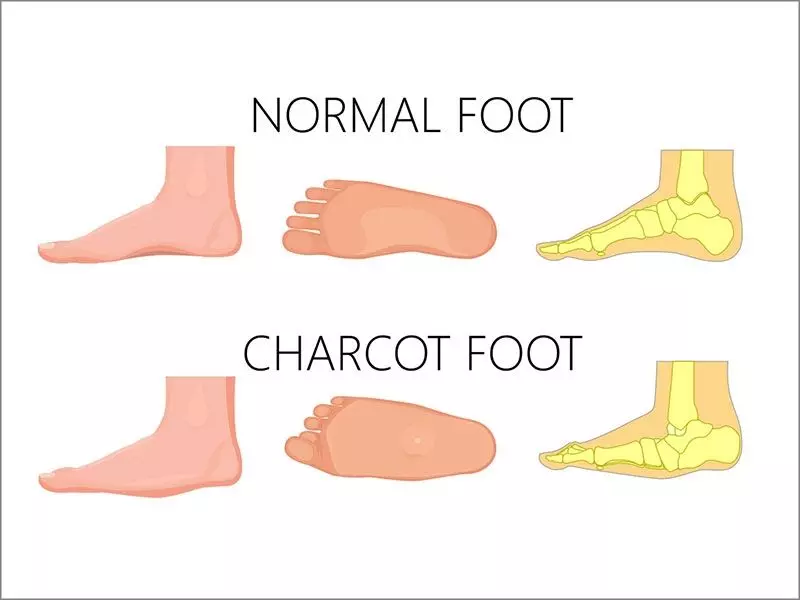- Home
- Medical news & Guidelines
- Anesthesiology
- Cardiology and CTVS
- Critical Care
- Dentistry
- Dermatology
- Diabetes and Endocrinology
- ENT
- Gastroenterology
- Medicine
- Nephrology
- Neurology
- Obstretics-Gynaecology
- Oncology
- Ophthalmology
- Orthopaedics
- Pediatrics-Neonatology
- Psychiatry
- Pulmonology
- Radiology
- Surgery
- Urology
- Laboratory Medicine
- Diet
- Nursing
- Paramedical
- Physiotherapy
- Health news
- Fact Check
- Bone Health Fact Check
- Brain Health Fact Check
- Cancer Related Fact Check
- Child Care Fact Check
- Dental and oral health fact check
- Diabetes and metabolic health fact check
- Diet and Nutrition Fact Check
- Eye and ENT Care Fact Check
- Fitness fact check
- Gut health fact check
- Heart health fact check
- Kidney health fact check
- Medical education fact check
- Men's health fact check
- Respiratory fact check
- Skin and hair care fact check
- Vaccine and Immunization fact check
- Women's health fact check
- AYUSH
- State News
- Andaman and Nicobar Islands
- Andhra Pradesh
- Arunachal Pradesh
- Assam
- Bihar
- Chandigarh
- Chattisgarh
- Dadra and Nagar Haveli
- Daman and Diu
- Delhi
- Goa
- Gujarat
- Haryana
- Himachal Pradesh
- Jammu & Kashmir
- Jharkhand
- Karnataka
- Kerala
- Ladakh
- Lakshadweep
- Madhya Pradesh
- Maharashtra
- Manipur
- Meghalaya
- Mizoram
- Nagaland
- Odisha
- Puducherry
- Punjab
- Rajasthan
- Sikkim
- Tamil Nadu
- Telangana
- Tripura
- Uttar Pradesh
- Uttrakhand
- West Bengal
- Medical Education
- Industry
DASH Diet and Losartan control uric acid and BP in patients with Hypertension and Gout

In the relentless battle against hypertension and the looming threat of gout, a groundbreaking study has illuminated a path forward. The findings from a post-hoc analysis of the DASH-losartan trial promise hope by shedding light on the potential of two well-known interventions— the DASH diet and losartan—in not only lowering blood pressure but also mitigating the risk factors associated with hypertension and gout.
The trial results were published in the Journal of Clinical Hypertension on August 21, 2023.
Hypertension is a widespread health concern with serious implications for heart health. It's not alone in the spotlight; lurking in its shadows is gout, a painful condition caused by the buildup of uric acid crystals in the joints. Recent research suggests that serum urate levels are not only linked to gout but also play a role in hypertension. The DASH diet, renowned for its ability to reduce high blood pressure through dietary modifications and Losartan, a medication commonly prescribed for hypertension, also joins the stage as a formidable contender. Both interventions have shown independent prowess in managing blood pressure, but the study seeks to unravel their potential in addressing serum urate levels, a lesser-known but critical aspect of hypertension and gout.
The study enrolled 55 participants, their average age being 52 years, comprising 58% women and 64% Black individuals— a diverse cohort reflecting the real-world prevalence of these conditions. Post-hoc analysis of the DASH-losartan trial was carried out with DASH diet or a standard American diet (control) and in crossover fashion to 4-week losartan or placebo. Serum urate was measured at baseline and after each 4-week period. Diets were designed to maintain weight constant. At the outset, participants exhibited a mean baseline ambulatory systolic blood pressure (SBP) of 146 mm Hg and diastolic blood pressure (DBP) of 91 mm Hg. Their average serum urate level at the start was 5.2 mg/dL.
Findings:
- The DASH diet did not demonstrate a significant reduction in serum urate levels across the entire participant group.
- But it showed remarkable promise among those grappling with baseline hyperuricemia where participants experienced a notable drop in serum urate levels, suggesting the DASH diet's potential to address hyperuricemia and potentially reduce the risk of gout.
- Losartan led to a significant reduction in serum urate levels overall, indicating its potential to combat gout risk.
- Notably, the effects of losartan were more pronounced among younger adults, those below the age of 60, compared to their older counterparts.
- This age-based interaction suggests that losartan could be particularly beneficial for younger individuals dealing with elevated uric acid levels.
Thus, the present trial emphasizes the potential of the DASH diet to reduce serum urate levels in individuals already at risk due to hyperuricemia. Moreover, losartan's ability to lower serum urate levels, especially among younger adults, hints at its multifaceted benefits beyond hypertension management. These discoveries could pave the way for more tailored approaches to managing both conditions. Future research will likely delve deeper into the effects of these interventions on patients with hyperuricemia or diagnosed gout, potentially revolutionizing the way these conditions are approached in clinical settings.
Further reading: Castilla-Ojo N, Turkson-Ocran RA, Conlin PR, Appel LJ, Miller ER 3rd, Juraschek SP. Effects of the DASH diet and losartan on serum urate among adults with hypertension: Results of a randomized trial [published online ahead of print, 2023 Sep 11]. J Clin Hypertens (Greenwich). 2023;10.1111/jch.14721. doi:10.1111/jch.14721
BDS, MDS
Dr.Niharika Harsha B (BDS,MDS) completed her BDS from Govt Dental College, Hyderabad and MDS from Dr.NTR University of health sciences(Now Kaloji Rao University). She has 4 years of private dental practice and worked for 2 years as Consultant Oral Radiologist at a Dental Imaging Centre in Hyderabad. She worked as Research Assistant and scientific writer in the development of Oral Anti cancer screening device with her seniors. She has a deep intriguing wish in writing highly engaging, captivating and informative medical content for a wider audience. She can be contacted at editorial@medicaldialogues.in.
Dr Kamal Kant Kohli-MBBS, DTCD- a chest specialist with more than 30 years of practice and a flair for writing clinical articles, Dr Kamal Kant Kohli joined Medical Dialogues as a Chief Editor of Medical News. Besides writing articles, as an editor, he proofreads and verifies all the medical content published on Medical Dialogues including those coming from journals, studies,medical conferences,guidelines etc. Email: drkohli@medicaldialogues.in. Contact no. 011-43720751




